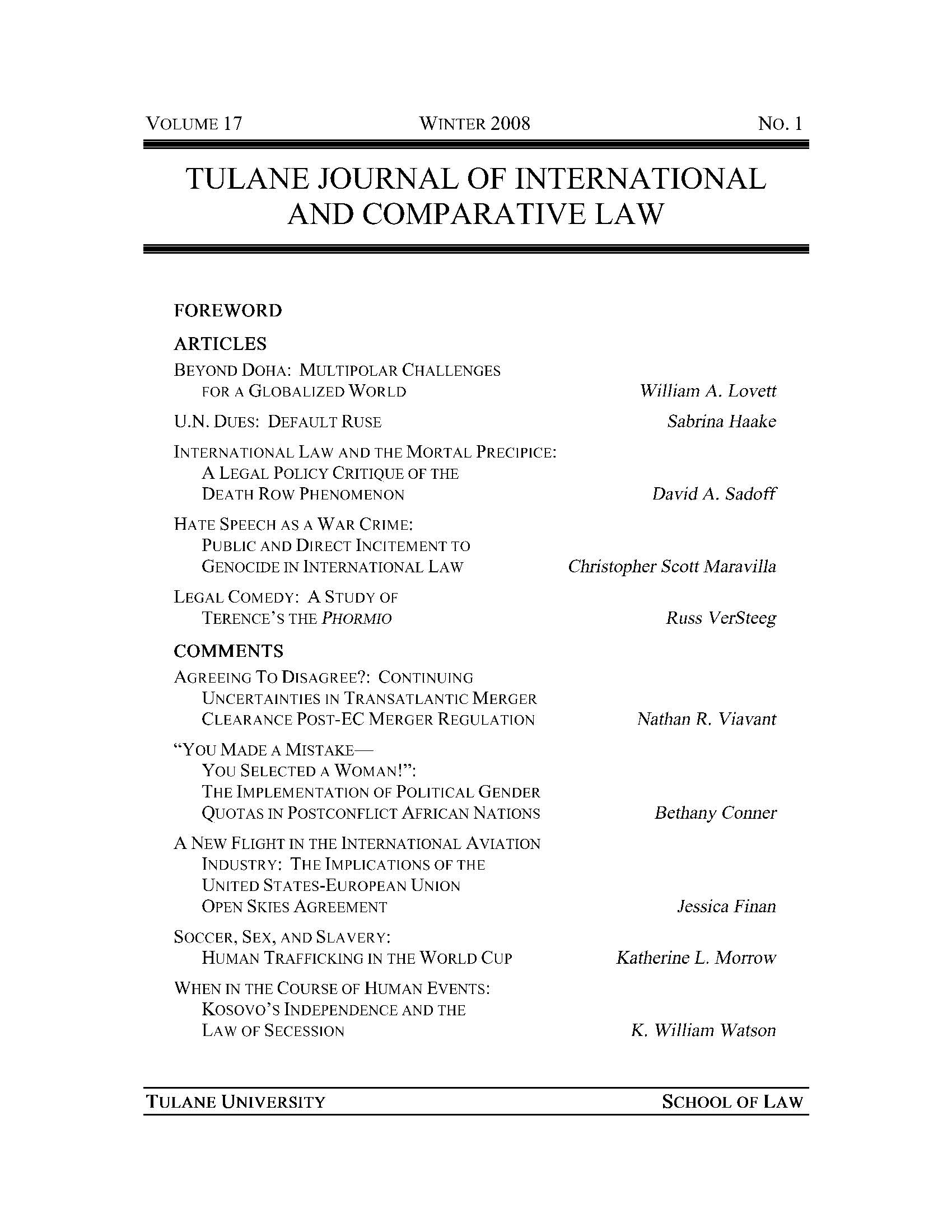Legal Comedy: A Study of Terence’s the Phormio
Abstract
Legal historians frequently rely on literary evidence to fill gaps left by a paucity of legal
documents. Literature often supplies a “popular” view of law and legal institutions. This Article
provides a legal commentary of the ancient Roman comedy, Phormio, written by Terence (circa. 186-
159 B.C.). A troupe of actors first performed the Phormio in 161 B.C. Because Terence based his
play on a Greek original, The Claimant, by Apollodorus of Carystus (a writer of New Comedy in the
first half of the third century B.C.), the Article uses the text of Terence’s comedy in an effort to identify
and examine both Athenian and Roman law. Legal issues and legal references animate the entire play.
In considering the Phormio, we gain legal insight by addressing two specific issues. First,
because Terence based his play on an earlier Greek original, certain elements of the plot (some of
which include legal matters) are dictated by the Greek original. However, Terence was free to treat
other elements (also including legal matters) more freely when they were not essential to the plot
itself. Thus, some legal elements that are essential to the plot reflect Athenian law from the time of
the Greek original (i.e., 300-250 B.C.), while other, nonessential elements may reflect the Roman
law with which Terence was familiar (i.e., Roman law one hundred years later, 200-150 B.C.). For
example, because marriage law is so vital to the plot, the laws relating to marriage in the Phormio
must surely be Athenian. But much of the casual dialogue—for example, the banter about the sons
and slaves, and the slave trade—may reflect Roman law regarding the sale of slaves. And even if
Terence did not consciously depict Roman law, his audience most certainly would have related to
the play using its knowledge of contemporary Roman law (not Athenian law).
Part II provides a brief summary of the plot. Parts III-VI consider in turn specific areas of
law: slave law, marriage and family law, contracts and commercial law, and procedure.
